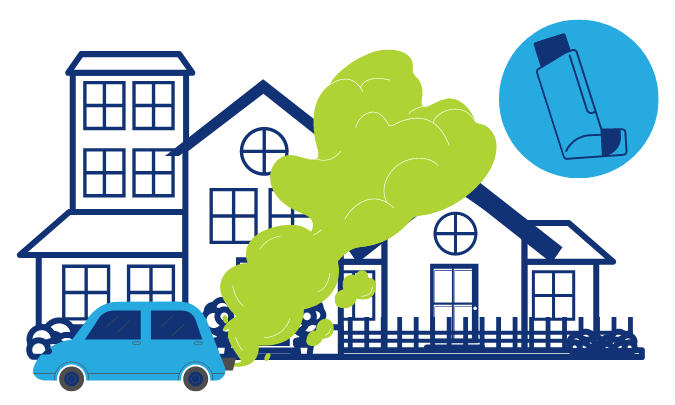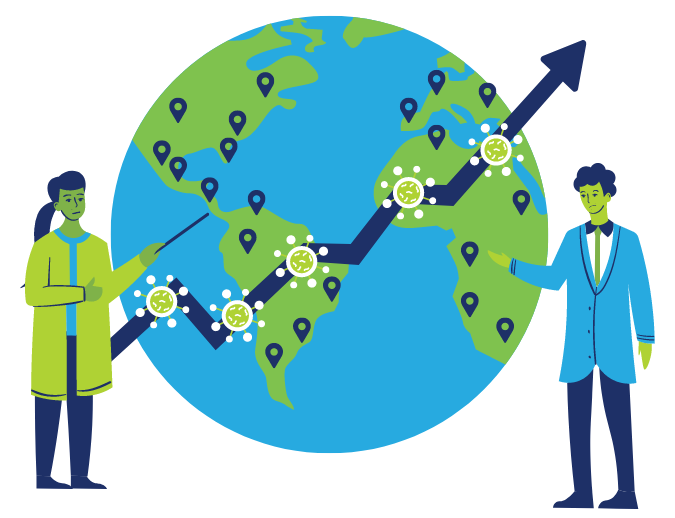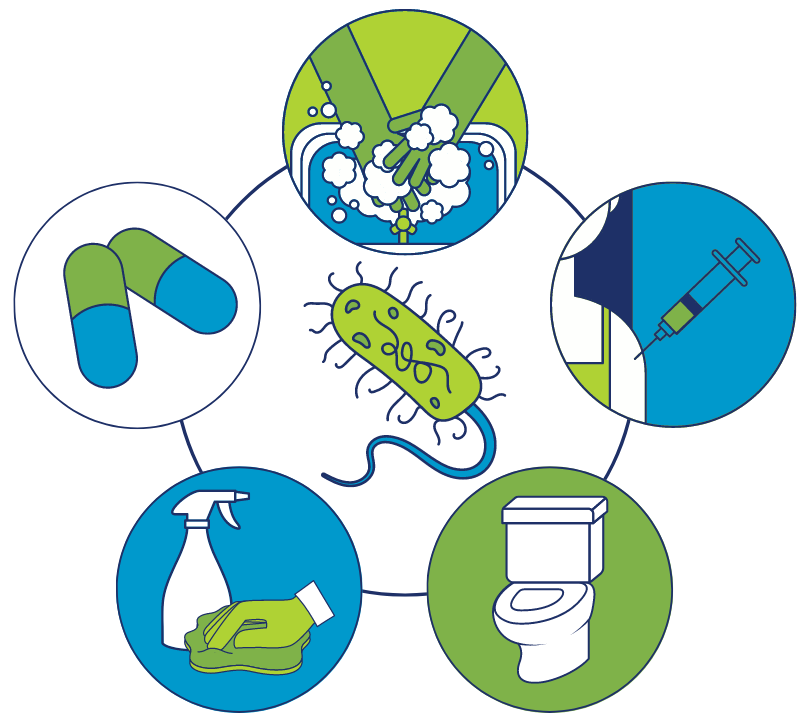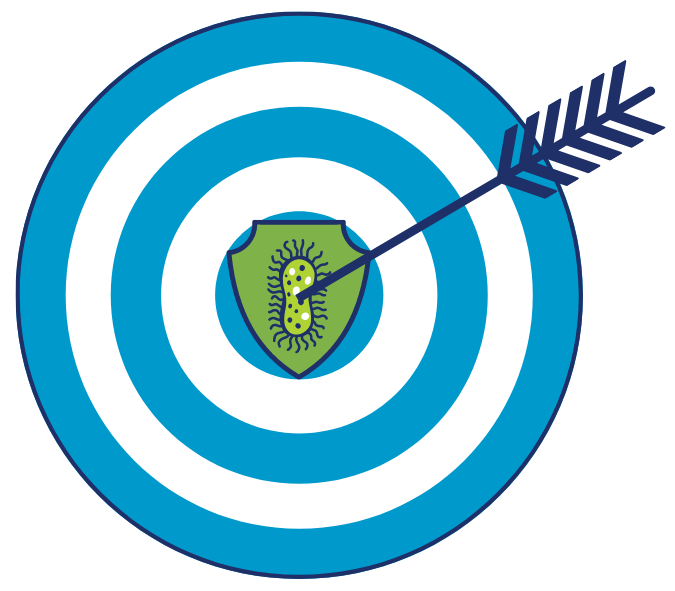
Hindsight is 20-20 – it’s an old saying and never more true than when looking back at an epidemic. But sometimes looking backward can help people think more clearly when planning ahead.
Dr. Sabine Franklin, a post-doctoral researcher at Yale University, is an economist using her training to better understand public health.
She went to west Africa to talk to people about the Ebola epidemic (2014-2016) that killed 11,000 people, most of them in Guinea, Liberia, and Sierra Leone. Franklin wanted to see how communities responded during and after the epidemic, and what might be useful going forward.
In her ongoing research on outbreaks, she’s found that people don’t always apply lessons learned to diseases, like what we’ve seen in the COVID-19 pandemic. Experts are also failing to use what they already know in trying to respond to ever-worsening outbreaks of avian influenza.
Listen to this episode of One World, One Health as Dr. Franklin describes where she sees the world falling short, and how she thinks things could be turned around in time using the One Health approach to help us all better handle the next pandemic.
Maggie Fox
Hello and welcome to One World, One Health with the latest ideas to improve the health of our planet and its people. I’m Maggie Fox. All of us here on Planet Earth are facing problems such as pollution, climate change and infectious diseases, both old and new. Animal health, human health, plant health, and the climate are all linked. This podcast is brought to you by the One Health Trust, with bite-sized insights into ways to help.
Dr. Sabine Franklin, a post-doctoral researcher at Yale University, has been looking at how communities in West Africa organized after the horrible Ebola epidemic in 2014-2016. It killed 11,000 people. Communities worked together from the ground up to make things healthier.
In this episode, we’re chatting with Sabine about what she found and how she thinks it applies to the ongoing COVID pandemic and future possible pandemics. There are plenty of threats out there. Sabine, thanks so much for joining us.
Sabine Franklin
Thank you for having me on. It is a pleasure to be here.
Maggie Fox
Sabine, first tell us a little bit about your work in the countries of West Africa that were affected by Ebola.
Sabine Franklin
The three main countries that were affected by the Ebola virus disease during the 2014-2016 outbreak [are] what we would call the Mano River Region countries. These were Guinea, Liberia, and Sierra Leone.
I guess to kind of understand a little bit about what happened, [we] kind of need to go back a little further before 2014. These three countries were in a state of recovery from the civil wars. They had two decades from the 1980s to 1990s of civil wars that had actually spilled over into each other. It started in Liberia, and then it spilled over to Sierra Leone, and then a little bit of Guinea also had some conflict.
So, they were in recovery. A lot of their infrastructure had been destroyed. When we think about infrastructure, we’re talking about money, people, and things. The roads were pretty much destroyed, buildings, hospitals, schools were burned down during the war time, as well as people fled or were displaced.
Where the Mano River is, where it intersects all three countries, that border area is where the civil war, where the conflict started. And it’s also where Ebola started in 2014. It’s actually not quite a coincidence, that Ebola kind of came out from this area. If we think about the virus being very rural dominant. And there’s also a lack of health care infrastructure, so people were very sick. There [was] a high amount of unusual cases of illness and deaths, and no one knew what it was.
As I said earlier, because there was a lack of infrastructure, things like roads, it was very hard for people to really travel to get to a major hospital, right? So back when I went, in 2017, to get to Kailahun, which is a district all the way in the eastern part of the country where the outbreak first started, from Freetown, which is in the West, took me about two and a half days. So you can imagine that if you are someone who is from that area and you’re very sick, and you need to get to Freetown where all the major hospitals are, it would cost you a lot of money and a lot of time just to travel.
Maggie Fox
So what were you looking at when you went there?
Sabine Franklin
When I visited Sierra Leone the first time after Ebola, like right after, I interviewed a range of different people, healthcare professionals, government workers, NGO workers, and the traditional leaders and community leaders. The main strength that they reported was the involvement of the traditional authorities. So I termed this “traditional local institutions,” because these are the customs and laws that are governed by paramount chiefs, chiefs, clan leaders, monarchs, youth leaders, and secret society leaders.
These institutions preexisted colonialism, they survived colonialism, and in many places in Sub Saharan Africa today, they’re still thriving. The reason why they were successful in Sierra Leone has to do in large part with the trusted influence that traditional leaders have, but they also have the ability to monitor and enforce rules and laws.
That’s the basic principle of any institution we want to think of, whether it be state institutions or community institutions. They passed the bylaws, which acted as emergency management regulations. So things that, believe it or not, we are familiar with today with COVID, such as stay-at-home orders, banning gatherings. They mandated healthcare referrals and that really helped with the Ebola virus disease outbreak, because by mandating healthcare referrals, they encouraged people to seek treatment earlier. In the beginning of the Ebola outbreak, the message was that this is a deadly disease. If you get it, you’ll die. They not only sparked a lot of fear, but for people who very practically were saying, well, it’s going to be very costly for me to travel to a hospital only for me to go there and the doctors can’t do anything, I’m just going to die in a hospital away from my family. So, many people said, well, if I have Ebola, then I’ll just stay home, have my family take care of me, and die in dignity and in peace.
However, the thing is, is that at-home caregiving actually perpetuates disease spread, because the virus is very, very contagious. That’s why you see that, if you remember images from the outbreak, people had to wear those PPE suits, the Hazmat suits that covered them from head to toe.
The message then had to change from this as a deadly disease to this disease is treatable if you get early intervention. [After] the first signs of illness fever, diarrhea, headache, go to the healthcare centers. The paramount chiefs had to mandate seeing a healthcare professional, so no at-home caregiving and no visiting traditional healers, in order to bring down the mortality rate.
Maggie Fox
And so did this back and forth during Ebola, did it build trust in the traditional leaders and help improve the situation going forward?
Sabine Franklin
Well, I think that traditional leaders, particularly in Sierra Leone, always had high levels of trust and influence from local communities. If we think about the rural areas, those rural communities like in Kailahun and Kenema, where they were pretty isolated from state institutions, a lot of times it is those traditional authorities who are in the presence of people’s lives every day rather than the state.
I think that it was just natural, in 2014, for those traditional leaders to step in and say, okay, listen, this is getting out of control, we need to get together and agree on a set of public health rules to try to get this outbreak under control. I think the trust and influence is already there. But what happened after Ebola is that the state realized how much they really needed the involvement of community stakeholders. And so they integrated them further for COVID-19.
Maggie Fox
What did that look like, integrating them further?
Sabine Franklin
The response for COVID-19 was more proactive and just more immediate in terms of having those structures of social mobilization and information dissemination. Many of the folks that I talked to said that as soon as they heard about COVID-19 in China, the government already started calling meetings with traditional leaders, as well as a wider variety of stakeholders [like] educators, religious leaders, and other community leaders who are also included in those meetings to talk about, okay, this is COVID-19. This is what is being reported so far. And so we want people to be on alert for this, alert for any type of symptoms, any unusual cases of say, pneumonia, etc. And then as the information about COVID-19 evolved, in terms of learning more about the disease and learning more about the case definitions, that information was disseminated down through their social mobilization pillars.
Maggie Fox
And how did that affect the spread of COVID in West Africa? I know Africa wasn’t hit as hard by COVID as some other countries, but did you get a sense that it helped?
Sabine Franklin
Oh, yes. I would say 100% of all people that I spoke to, and I went to five different districts and I interviewed 10 people per district, that was pretty much a universal response, that this helped and it was better than the response to the Ebola virus. I would characterize the response in Sierra Leone [as] being mainly preventative, as opposed to just waiting for the disease to come and then react, right? They were trying to prevent COVID from even entering the country. They took measures such as closing the border and screening any visitors that landed through Lungi (Freetown) Airport. And that’s actually how they were able to catch their first case, and then immediately initiate contact tracing of all those who were on the same plane to monitor them as well. It was definitely more of a preventative spread. Realistically, they had to do that.
If you think about countries like Sierra Leone, in Sub Saharan Africa, they rely so much on external funding for their healthcare systems as well as public health emergency response. But this time around with COVID, it was Western countries, the donor countries, the funder countries, that were heavily impacted by COVID. A lot of them had to withdraw their support from low-income countries [like] Sierra Leone. Sierra Leone did not get the resources and funding that they needed this time around with COVID-19 to try to manage a wide scale outbreak, so they were really focused on just preventative effort.
Maggie Fox
Now we have a new threat, H5N1 bird flu. It’s not new. It’s been around for 20 years, but you’ve been watching how the world’s responding to the renewed spread of this virus. Tell us what we haven’t learned on a global level.
Sabine Franklin
H5N1, as you said, we have been warned about for nearly 20 years, but the policy of culling birds and poultry has been in place for many years as well. But the avian flu has kept recurring. So if culling birds in prior outbreaks had worked, we would not be having a recurrence of avian flu pandemic. Not only did this practice not work, and we keep having outbreaks, but now we’re seeing it in different species of mammals that are infected and dying from the virus. We need to change course, because culling mammals is not going to work either, right?
I think that we as a society, we need to change our perspectives on disease outbreaks, whether it is bird flu or Ebola. We’re not going to be able to solve every disease with a pill or rapid vaccine development. We need to reconsider how we interact with the environment and animals, and that means adjusting urbanization policies, stronger environmental protection, and taking a look at the practice of mass agricultural farming.
Basically these are going to change much of the way that we live, where currently, anything and everything is conveniently available for our consumption, because these things impact planetary health, which in turn will impact animal and human health. So One Health is not just a few policy changes here and there; it is a pretty big ask because we’re advocating for governments to restructure their economies and societies to balance our wants with what the planet needs.
Maggie Fox
What are you afraid might happen if people don’t come together?
Sabine Franklin
I am trained as an economist as well as a political scientist. I feel that governments are likely to address public health issues if one, we can make a clear economic connection to health outcomes, and two, the political feasibility. So for many democracies, what matters is achieving a goal during the four to five years that you’re in office. Many public health goals that we have will come to fruition in the long term. That does not incentivize elected officials to take it on. It’s not impossible.
I believe that any individual who is in public administration will tell you that public health is important. But the way that many of these political offices work is trying to get the “wins” on the books before the next election cycle.
Maggie Fox
Can you think of a way to incentivize these short term officials to have longer term goals and to help their countries in the long term?
Sabine Franklin
When we think about how our political structures are set up, it’s really difficult to push a long term agenda. It’s really just going to take a slow and deliberative process through various local advocacy groups, grassroots groups, community leaders, to keep pushing administration after administration to help build public health infrastructure. And that’s not just in low-income countries, but even in higher-income countries like the United States or the United Kingdom.
Remember, we’re making systemic changes and when we talk about public health goals, because for One Health, where it’s a pretty big ask, we’re talking about changing our consumer culture, our wants to also balance the needs of environmental health and animal health. So these are systemic changes that are going to take a very long time to actually occur. Political officials are only in office for the short term and they’re focused on getting those wins in during those few years.
The change is really going to come from on the ground. It’s going to be bottom-up change from various stakeholders, activists, community leaders, and in other countries traditional leaders as well, to keep pushing administration after administration for these goals.
Maggie Fox
Sabine, thank you so much for joining us.
Sabine Franklin
Thank you again for inviting me. It was a real pleasure to speak with you.
Maggie Fox
If you liked this podcast, which is brought to you by the One Health Trust, please share it by email, or on social media, and let us know what else you’d like to hear about at [email protected]. Thanks for listening.
Ramanan Laxminarayan
Thank you for listening to One World, One Health brought to you by the One Health Trust. I’m Ramanan Laxminarayan, founder and president of the One Health Trust. You can subscribe to One World, One Health on Spotify, Apple Podcasts, or wherever you listen to podcasts. Follow us on social media at @onehealthtrust, one word, for updates on One World, One Health and the latest in research on One Health issues like drug resistance, disease spillovers, and the social determinants of health. Finally, please do consider donating to the One Health Trust to support this podcast and other initiatives and research that help us promote health and wellbeing worldwide. Until next time.
Transcribed by https://otter.ai
Guest

Credits
Hosted and written by Maggie Fox
Special guest: Sabine Franklin
Produced and edited by Samantha Serrano
Music composed and sound edited by Raquel Krügel
Transcript edited by Aditi Satyavrath







